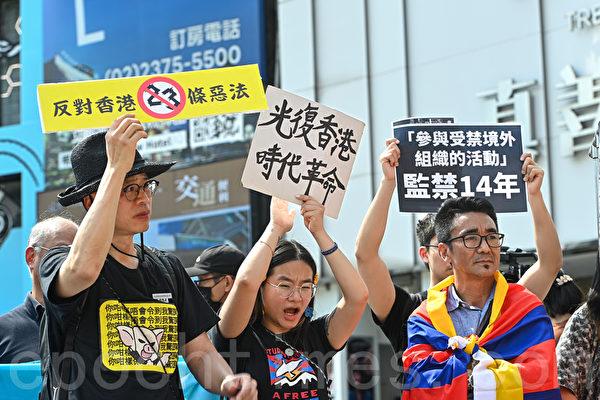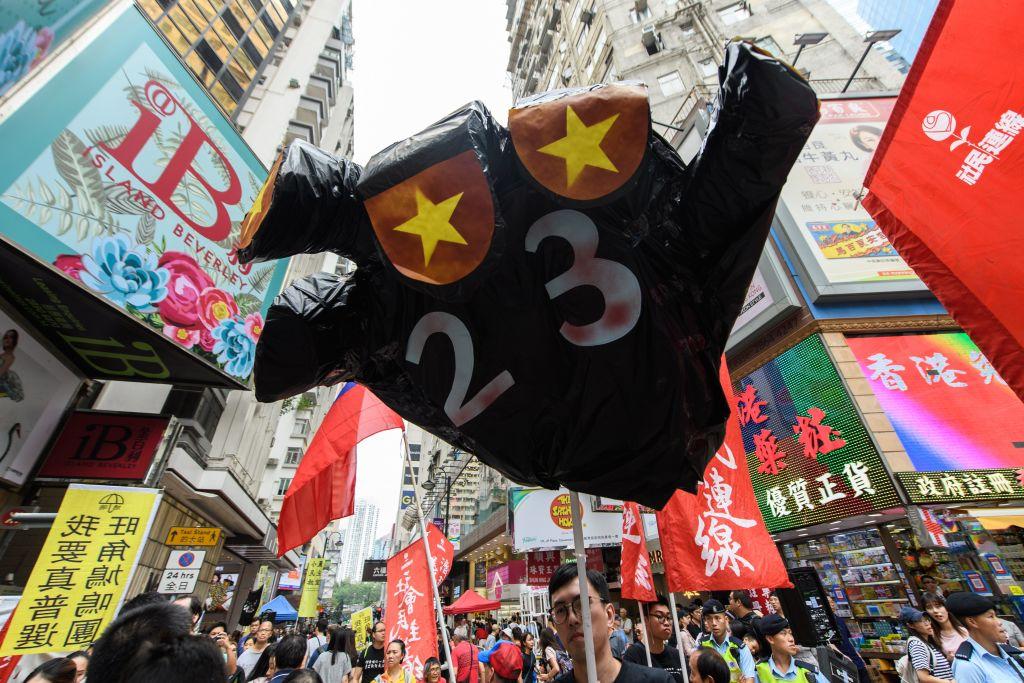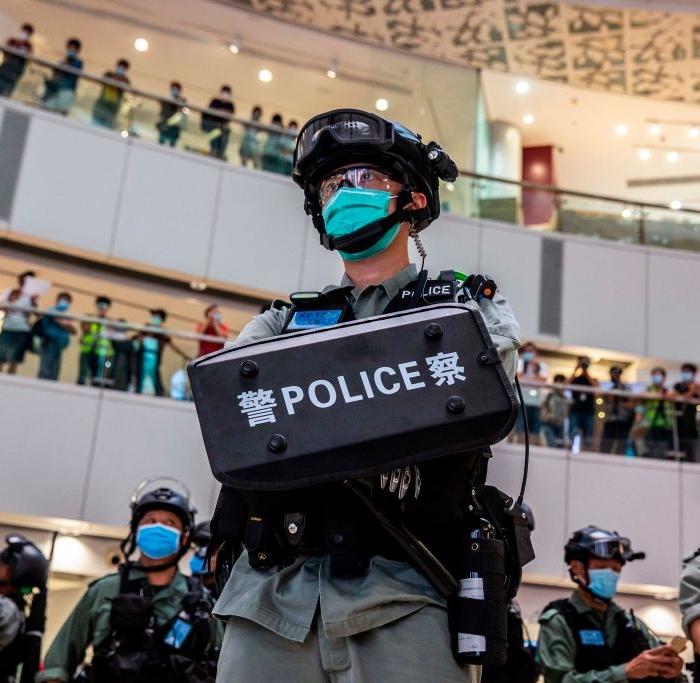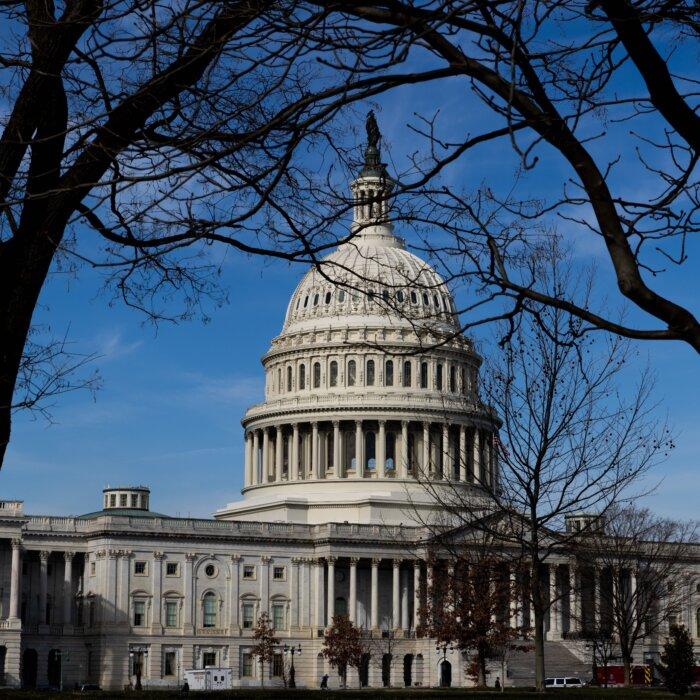Article 23 of the Basic Law, a highly controversial legislation, resulted in over 500,000 Hongkongers taking to the streets to protest in 2003 when it was first proposed by pro-Chinese Communist Party (CCP) legislators.
At that time critics argued that the proposed Article 23 legislation threatened to undermine the rights and freedoms of Hong Kongers guaranteed by the Basic Law and contravened the Sino-British Joint Declaration. After many protests, it was abandoned.
But, Article 23 has just been reintroduced, and it has passed without opposition as the current legislative council members are all supportive of the CCP. Since the introduction of the National Security Law in 2020, people in Hong Kong are no longer able to protest.
For instance, some clauses of Article 23 allow for criminal prosecution for actions taken worldwide.
New York
Mr. Cai, a newly arrived CCP member from China, participated in the protest in New York, saying that China has closed its last window and symbol of openness to the world by ruining “one country, two systems.”He revealed his disappointment after 26 years of service for the communist regime.
“Almost every year [I] was awarded as a model worker, excellent Communist Party member, but I was not promoted, [because] if they had promoted me, who would have done the work? Also, because I didn’t give gifts…” he said.
Los Angeles
In Los Angeles, various Chinese organizations and groups gathered in front of the consulate general to protest. Slogans such as “Support Jimmy Lai,” and “Support Chow Hang-tung,” were seen.During the flag-raising ceremony, the banner “Liberate Hong Kong, Revolution of Our Time” rose slowly to the tune of “Glory to Hong Kong.” Attendees stood silently to commemorate those who lost lives during the 2019 anti-extradition bill protests.
Protesters also performed two short skits: one depicting the splattering of the Chinese national flag and the other reenacting protesters resisting the Chinese military and police. In the end, two actors dressed as old-style Chinese military personnel were defeated by protesters and lay on the ground begging for mercy.
Jie Lijian, the vice chairman of the China Democratic Party, likened the passage of Article 23 to a replica of the fake elections held by Xi Jinping in Beijing.
“Criticizing the Hong Kong authority could be seen as colluding with foreign forces; failure to report friends and family supporting democracy could lead to accusations of aiding incitement, resulting in up to 14 years of imprisonment. This is very terrifying,” he said.
“Why are Hong Kong people around the world, including democratic activists, angry and protesting? Because people see that the once-free Hong Kong has become a dead city.
“This also serves as a warning to some people in Taiwan: if you don’t defend freedom and human rights, Hong Kong today will be Taiwan tomorrow.”
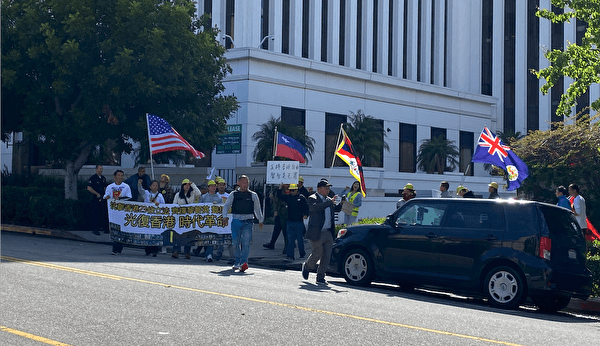
UK
Hongkongers in nine regions across the UK held protests on March. 23.In London, around 200 Hongkongers gathered outside the Foreign & Commonwealth Office to protest. They urged the UK government to take more concrete actions to sanction relevant officials in Hong Kong.
Benedict Rogers, the co-founder and Chief Executive of Hong Kong Watch, said that one of the most important messages of the rally was that what the British government did was far from enough.
He believes that Hong Kong officials who demanded the implementation of Article 23 should be sanctioned by the British government.
Hong Kong Watch called on the British Foreign Office to sanction Hong Kong Chief Executive John Lee Ka-chiu last year, but has yet to see any concrete action.
We have to continue to push forward, so that these officials, who have implemented the draconian law, can bear the consequences, said Mr. Rogers.
Carmen Lau Ka-man, an exiled ex-elected Hong Kong councillor, suggested that in addition to sanctions, the UK government should revoke the special status of the Hong Kong Economic and Trade Office in the UK.
“Because ‘one country, two systems’ no longer exists, there is no difference between Hong Kong and China. There is no reason for the Hong Kong Economic and Trade Office to operate independently of the Chinese Embassy in the UK,” she said.
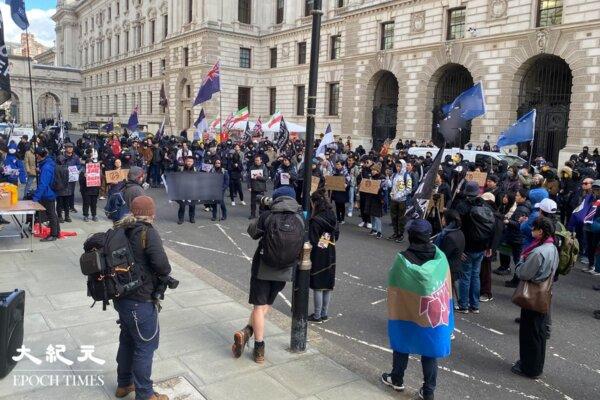
Birmingham, UK
Peter, a local resident, told The Epoch Times that the UK government should either better protect Hongkongers’ rights before the transfer of sovereignty, or take better actions to prevent Article 23, as it would deprive many people of their freedom and right to return to their homeland.Admiring and supporting the actions of Hongkongers, Peter came to support the protest when his friend informed him of the protest. He also expressed hopes that Hongkongers would continue to live well amidst their struggles.
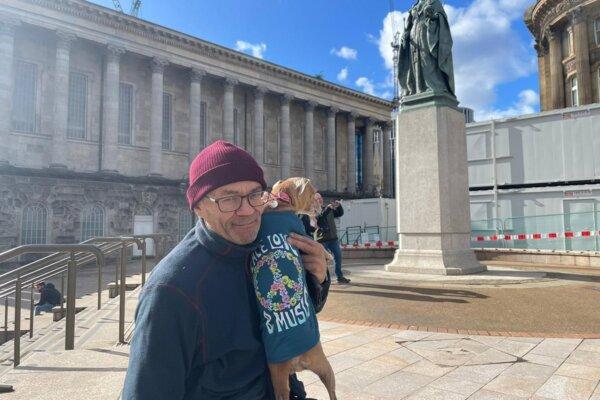
Vancouver
In Vancouver, around 300 Chinese people gathered in downtown and in front of the Chinese consulate to protest.Hong Kong D100 internet radio channel host Edmund Wan Yiu-sing, better known as “Giggs,” also participated in the protest.
“Article 23 national security law is only for protecting one person’s safety, not Hongkongers’ safety. The safer that one person is, the more dangerous we are,” he said. “What we can do outside is to share Hong Kong’s story.”
“The most important thing is that we must try our best. Faced with the most evil totalitarian regime in the world, the most important thing is to persist, not to feel helpless, and blindly follow or collaborate with it. I think the most important thing is to continue resisting.”
Simon Lau Sai Leung, former advisor to the Central Policy Unit of Hong Kong, said that in addition to demonstrating against the CCP, people also need the Canadian government to take a tougher stance on Article 23.
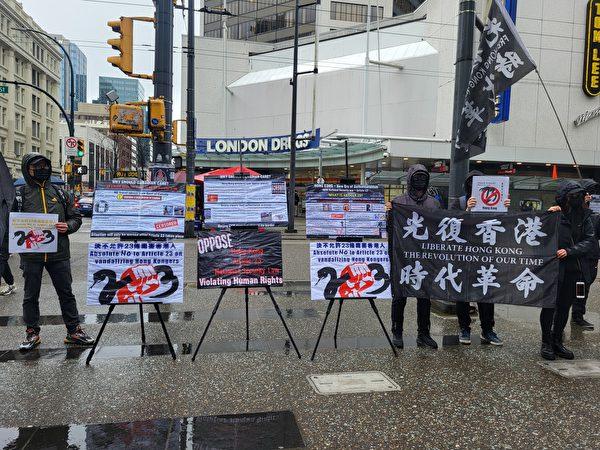
Taiwan
In Taiwan, exiled Hongkongers and local Taiwanese youth held a rally in Taipei.Huang Ching-Lung, Chairman of the Taipei Trust in Democracy Association, pointed out that a regime’s lack of confidence in its people, resorting to imposing two national security laws to bind Hong Kongers, serves as a significant warning to Taiwan.
Huang Man-ting, Secretary-General of the New School for Democracy, said “The enactment of Article 23 in Hong Kong undoubtedly tolls the death knell for freedom and democracy in Hong Kong,” she said. “It is also a direct expression by the CCP of its legal repression tactics against dissenters and threats to democratic countries.”
“Taiwan has long been subjected to China [CCP] ’s threats. It is all the more important for us to join the democratic camp in the world in opposing it.”
